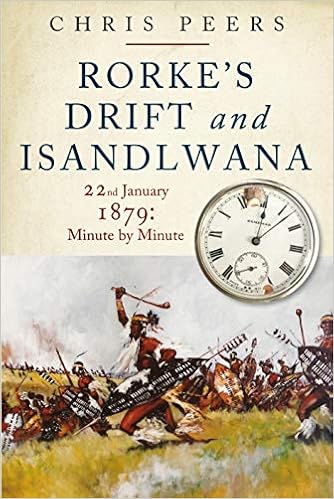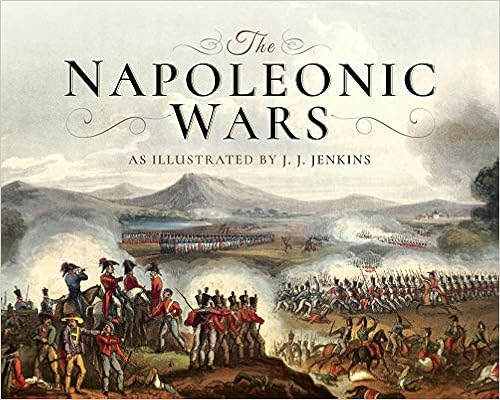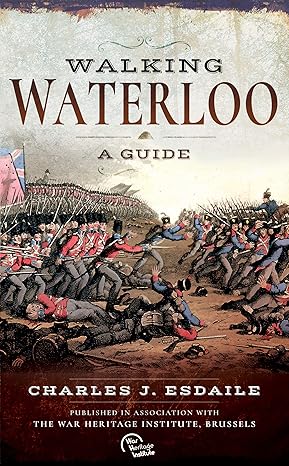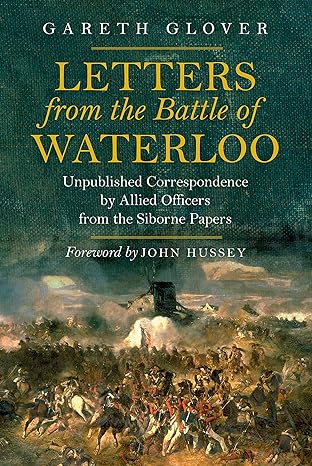The Battle of Omdurman
By Larry Parker
August 28, 1898 (PM)
It has been thirteen years since the death of General Gordon; thirteen years since the sack of Khartoum. During those thirteen years the peoples of the Sudan have suffered grievously under the cruel Dervish yoke of the Khalifa. At long last retribution is at hand. At long last liberation is at hand. At long last we are within days of our objective.
The journey to this point began two years ago and has been quite an adventure in itself for it is more than 1000 miles from Cairo to Omdurman. To bypass the Great Bend of the Nile a portion of the army have constructed a railroad 400 miles in length from Wadi Halfa through the trackless Nubian desert to Abu Hamed while the remainder drag our gunboats, transport craft and supply vessels through the cataracts. What sights that ancient river has witnessed. It is an Augean labor but an essential effort if we are to have the wherewithal needed to complete the task at hand. To move an army of 25,000 men that distance, in such a fashion, with all the necessaries required to sustain it is a remarkable testament to modern engineering and English pluck.
September 1st, 1898 (AM)
Finally, after a 1000 mile trek by rail and river transport, often marching at night to avoid the pitiless heat of the day, we are encamped at El Ageiga on the East bank of the Nile within striking distance of Omdurman the Dervish capital. What the natives call a "zariba" (thorn wall) protects our front; gunboats guard our flanks. Should the Dervish attack they will be met by some 80 thoroughly modern pieces of quick firing field artillery, 40 water cooled Maxim machineguns and thousands of single shot Martini-Henry and bolt action, magazine fed Lee-Metford rifles in the capable hands of British, Egyptian and loyal Sudanese troops. Some of our units even carry Lee-Enfield rifles of the very latest design. Although outnumbered two to one I have no doubt of the outcome. Our personal differences aside, I freely admit to the inescapable fact that Major General Sir Herbert Kitchener, Sirdar of the combined army, is a meticulous, methodical leader who leaves nothing to chance as abundantly made clear by this well planned and well executed advance. It remains to be seen if his scrupulous attention to logistic detail is matched by an equal measure of tactical acumen. Should that prove to be the case, on the morrow we shall, undoubtedly, avenge the death of General Gordon, cleanse the stain of Khartoum from the English banner, eradicate the Dervish threat to civilization and end French designs in this region. Soon thereafter, Her Royal Majesty shall add the Sudan to her growing Empire.
September 1st, 1898 (PM)
Dined with John George Stewart-Murray, Marquess of Tullibardine. He fears the Mahdiyya will use the next few hours to attack for, given our vast superiority in arms, the cover of darkness is their only advantage; their overwhelming numbers their only hope of success. Wisely, General Kitchener keeps the men busy with preparations for tomorrow's events.
September 2nd, 1898 (Dawn)
Our fears proved unfounded for the tense night passed uneventfully. We could hear the heathen call to prayers earlier and now we begin to see dust clouds rising in the hills all around us. The Dervish are on the move. The excitement and the fear in our ranks are palpable. Steady. Steady. They swarm as locusts and here they come! At 3000 yards our 12 pounders, 75 mm cannon and 6 cm Krupp's crash like thunder. Five inch howitzers aboard the gunboats add to the din. The high explosive lyddite shells scream overhead and upon impact, tear great holes in the tightly massed ranks of the Mahdists. At 1800 yards the Maxims hammer out death, cutting down the enemy like scythes through ripe grain. All along the line I hear officers and sergeants bellowing, "Hold your fire. Hold your fire. Hold! Hold!" We give them the first volley at 1000 yards. The discharge of thousands of rifles adds its noise to the cacophony and the world dissolves into smoke and chaos. It is devastating; the most signal triumph ever gained by the arms of science over barbarism (1).
It is over! The wild charge is broken. For all their fury no man has come closer than 500 yards to our lines. From where I stand our casualties appear negligible while the field before me is littered with dead and dying men. I hear the bugles call to form ranks. The time is come to counterattack and turn defeat into disaster for the foe. I must hurry if I am to ride with the 21st Lancers.
| * * * |
"This war correspondent, what was his name?"
"Churchill, Sir. Winston, I believe. On leave from the Queens Own 4th Regiment of Hussars and temporarily attached to the 21st Lancers. Fine fellow from what I've gathered and quite a gift for the Queen's English from what I've read of his reports to The Morning Post. Since Churchill served under Colonel Martin, I would have taken this to him but Martin is still abed in the hospital."
"Quite. Obviously not a cautious man if he rode with the 21st. He was certainly under no obligation to do so. He could have remained in camp and filed his account safely after the fact. Shame Churchill did not survive his wounds. Might have had an interesting career; one to watch."
"Indeed, Sir. Good family; well connected. But we are all motes of dust adrift on the currents of history are we not? And it's not like Parliament was in his future."
| * * * |
Not for the first time and certainly not for the last the forces of Western Civilization and the forces of radical Islam, in this case the Mahdi Militant Revivalist Islamic Movement, clashed on 02 September 1898. The conflict began in 1881 when Mohammed Ahmed, a boat builder, assumed the title Mahdi, the military leader predicted in Sunni tradition to rid the Islamic world of evil and impurity. Ignited by a revival of radical fundamentalist ideology, fueled by antipathy for the inept and corrupt Egyptian administration of the region and fanned into flames by anti-imperial, anti-infidel sentiment, the insurrection reached its zenith in 1885 with the fall of Khartoum and the establishment of a caliphate in Sudan. Presaging Al Qaeda, the Taliban, and ISIS in the Middle East and Al Shabaab and Boko Haram in Africa the Mahdist or Dervish theocracy ruled over the Sudanese with brutal cruelty. It took thirteen years for England to muster the forces and the political will to respond. That response was driven not only by the humiliation brought about by the fall of Khartoum (and with it the Gladstone government) and the danger the Dervish movement posed to British rule but also by growing Belgian, French, German, Italian and Portuguese interests in Africa. One of England's goals was to control the Nile from its headwaters to the delta and the Dervish were an impediment to that ambition.
During the Battle of Omdurman 8,200 British and 17,600 Egyptian and Sudanese troops fought a decisive engagement with 52,000 Dervish soldiers. The battle was, as war correspondent for The Morning Post Winston Churchill noted, "A mere matter of machinery." British losses were 48 killed and 434 wounded. Dervish losses were catastrophic - 9,700 killed, 10-16,000 wounded and 5,000 captured. That said General Kitchener's mastery of tactics did not match his skill as a Woolwich trained engineer. His approach march was a model of meticulous planning and attention to logistic detail (2) but he nearly squandered his technological advantage with a premature advance on Omdurman after the initial Dervish onslaught had been repulsed. Coolness under fire by his men and his Brigadiers prevented a disastrous repeat of Khartoum. Mahdism in the region destroyed, Sudan became an Anglo-Egyptian colony which Germany in World War I and Italy in World War II would covet.
Winston Churchill had previously faced danger with Bindon Blood's Malakand Field Force when it marched into the Swat Valley of India, now Pakistan, in 1897 to battle the Mohmand Rebels and in 1895 when he fought with the Spanish, once more as a correspondent, during the Cuban War of Independence. He did so again when he rode with the 21st Lancers at Omdurman. The 21st Lancers was raised in Bengal in 1858 by the East India Company and incorporated into the British army in 1862. Forty years later, saddled with the motto "Thou shalt not kill" by other units, the 21st was the only cavalry regiment in the British army without battle honors, a distinction its commander, Colonel Martin, was overly eager to rectify. Its attack at Omdurman, in which Churchill participated, was reminiscent of the charge of the Light Brigade at Balaclava forty-four years earlier (3). Indeed most of the casualties at Omdurman came during the charge of the 21st when toping a rise 400 horsemen crashed headlong into and fought through 2000 Dervish warriors concealed in a wadi. Churchill was fortunate that he was not among those killed or wounded. Churchill would risk his life yet again during the Boer War (4) and in the trenches of World War I. Like Theodore Roosevelt, Churchill's military exploits (5) launched his political career which was noted for its dizzying heights and depths of despair, Gallipoli probably being the absolute nadir. That he survived both war and politics and emerged from the "wilderness" in 1940 was nothing short of miraculous. Fortunately miracles do happen. It is hard to imagine England standing alone without Churchill at the helm during World War II (6).
| * * * |
Show Notes
| * * * |
© 2026 Larry Parker
Written by Larry Parker.
About the Author:
Lieutenant Commander Larry Parker, United States Navy, served as a Surface Warfare Officer, with afloat tours onboard USS De Wert (FFG-45) as Ordnance & Fire Control Officer, USS Portland (LSD-37) as First Lieutenant, and USS Butte (AE-27) as Operations Officer. Rotations ashore included Navy Reserve Center Cheyenne, Navy & Marine Corps Reserve Center Denver and Navy Reserve Readiness Command Region 16 Minneapolis. He retired in July 2000 and taught Navy Junior ROTC until June 2011. LCDR Parker holds a Bachelor's degree in English and History from the University of Kansas and a Master's degree in Military Studies - Land Warfare from American Military University. In his free time LCDR Parker pursues a lifelong passion for military history. His articles are the result of extensive research and personal experience in surface warfare, fleet logistics and amphibious operations.
* Views expressed by contributors are their own and do not necessarily represent those of MilitaryHistoryOnline.com.





